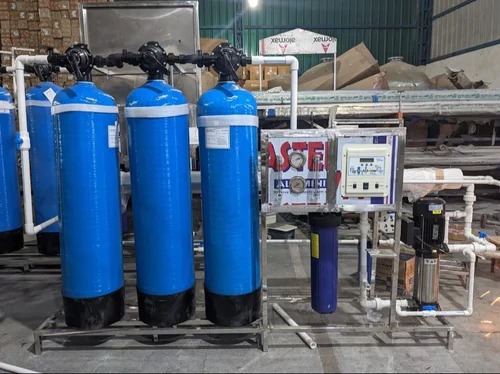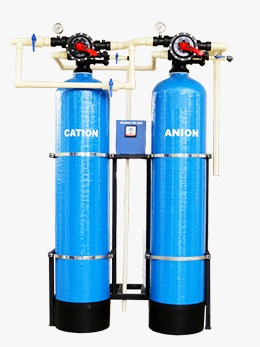
Introduction
Water is the backbone of every industry. But raw water from natural sources contains salts, minerals, and impurities that are not suitable for sensitive applications like pharmaceuticals, power generation, or electronics manufacturing. For such needs, industries use a DM Plant (Demineralization Plant) to achieve high-purity, demineralized water.
This article explains everything you need to know about DM plants—how they work, whether RO is necessary before DM, key applications, benefits, and important points to check before requesting a quotation.
Keywords: DM Plant, Demineralization Plant, DM Plant vs RO, DM Plant Applications, DM Plant Benefits, RO + DM Plant, Industrial Water Treatment, Pure Water System
What is a DM Plant?
A DM Plant (Demineralization Plant) is a water treatment system that removes dissolved salts, minerals, and ions from raw water using ion exchange technology.
Raw water typically contains:
- Calcium
- Magnesium
- Sodium
- Chloride
- Sulfate
- Nitrate
These dissolved ions can damage equipment like boilers and turbines or affect product quality in industries such as pharmaceuticals and electronics. A DM plant eliminates these ions and provides ultra-pure water with TDS as low as 0–10 ppm.
How Does a DM Plant Work?
A DM Plant operates using ion exchange resins that replace unwanted salts with harmless ions.
- Cation Exchange Resin – Removes positive ions (Calcium, Magnesium, Sodium) and replaces them with Hydrogen ions (H⁺).
- Anion Exchange Resin – Removes negative ions (Chloride, Sulfate, Nitrate) and replaces them with Hydroxide ions (OH⁻).
- Result – Hydrogen (H⁺) and Hydroxide (OH⁻) combine to form pure water (H₂O).
This process reduces conductivity and produces deionized water suitable for high-end industrial use.
DM Plant vvs.s RO Plant – Do You Need RO Before DM?
This is one of the most common questions asked by industry owners.
- Reverse Osmosis (RO Plant):
- Works on membrane technology
- Removes 95–98% of dissolved salts
- Produces low TDS water but not completely demineralized
- DM Plant (Demineralization Plant):
- Works on ion exchange process
- Removes nearly 100% of dissolved ions
- Produces water with almost zero TDS
👉 Is RO necessary before DM?
- If the raw water TDS is above 1000 ppm, RO should be installed first. It reduces load on the DM plant and increases resin life.
- If the raw water TDS is below 500 ppm, DM can be used directly.
- Many industries prefer RO + DM Plant combination for better efficiency, lower running cost, and extended life of resin.
Applications of DM Plant – Where is it used?
DM Plants are used across multiple industries where high-purity water is essential. Some key applications include:
- Pharmaceutical Industry – For drug formulations and sterile processes.
- Power Plants – As boiler feed water to prevent scaling and corrosion.
- Electronics & Semiconductor Industry – For chip manufacturing and circuit cleaning.
- Chemical Industry – For precise chemical reactions.
- Food & Beverage Industry – For soft drinks, packaged water, and food processing.
- Hospitals & Laboratories – For dialysis units and lab tests.
- Cosmetics Industry – For creams, lotions, and beauty products.
- Battery Manufacturing – For electrolyte water in lead-acid batteries.
👉 These applications show why a Demineralization Plant is critical for industries requiring pure water systems.
Benefits of DM Plant
A DM Plant offers several industrial and operational advantages:
- Ultra-Pure Water – Removes 99.9% of dissolved salts and ions.
- Protects Equipment – Prevents scaling and corrosion in boilers, turbines, and heat exchangers.
- Cost-Effective – Eliminates dependency on bottled pure water.
- Continuous Supply – Ensures uninterrupted availability of deionized water.
- Versatile – Available in different capacities (500 LPH, 1000 LPH, 2000 LPH, or custom).
- Environment-Friendly – Reduces plastic waste from packaged water.
- Improves Process Efficiency – Ensures better product quality and industrial performance.
Things to Check Before Buying a DM Plant (Quotation Guide)
When requesting a quotation for a DM Plant, always consider:
- Required Capacity – (500 LPH, 1000 LPH, 2000 LPH, or more)
- Raw Water TDS – If high, go for RO + DM combination
- Resin Type – Strong acid cation resin and strong base anion resin are ideal
- Regeneration Chemicals – Requires Hydrochloric Acid (HCl) and Sodium Hydroxide (NaOH)
- Automatic vs Manual – Automatic DM plants are easier to operate
- Material of Construction – FRP vessels for budget, SS 304/316 for industries
- Warranty & AMC – Check annual maintenance contract terms
👉 Choosing the right DM Plant Manufacturer ensures durability, efficiency, and lower long-term costs.
Maintenance of DM Plant
To ensure long life and consistent performance:
- Regular resin regeneration with acid/alkali is required
- Backwashing and flushing should be done on schedule
- Resin replacement cycle: 2–3 years depending on water quality
- Annual Maintenance Contracts (AMC) are highly recommended
DM Plant vs Other Technologies
- RO Plant – Removes 95–98% salts, but not 100%
- UV & UF Systems – Kill bacteria but do not remove salts
- Water Softener – Removes hardness only, not total dissolved solids
👉 For industries requiring zero TDS and deionized water, a DM Plant is the best choice.
FAQs on DM Plants
Q1: What is the TDS level of DM water?
A1: Typically between 0–10 ppm.
Q2: Do we always need RO before DM?
A2: Not always. It depends on raw water TDS.
Q3: What chemicals are used in DM regeneration?
A3: Hydrochloric Acid (HCl) and Sodium Hydroxide (NaOH).
Q4: What industries need DM water the most?
A4: Pharma, power plants, electronics, chemical, cosmetics, and battery manufacturing.
Q5: What is the lifespan of resins in DM Plants?
A5: 2–3 years with proper regeneration and maintenance.
Conclusion
A DM Plant (Demineralization Plant) is one of the most effective water treatment solutions for industries where ultra-pure water is essential. It ensures high-quality production, protects equipment, and reduces costs.
Whether you are in pharmaceuticals, power generation, electronics, food, or chemicals, investing in a DM plant is a long-term benefit. For high TDS water, RO + DM Plant is the ideal combination to ensure efficiency and durability.
If you are looking for a reliable DM Plant Manufacturer in Delhi NCR, Go On Sales Corporation provides customized solutions for all industrial water treatment needs.


